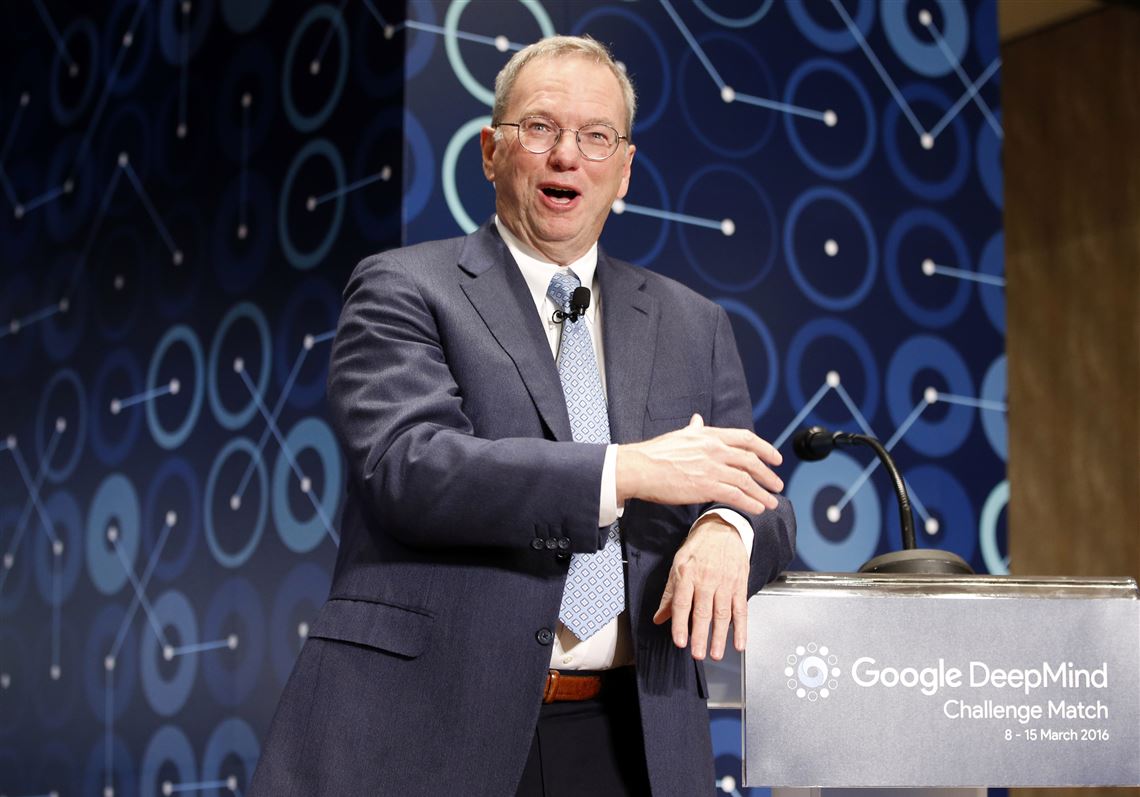The first time I interviewed Eric Schmidt, a dozen years ago when he was the CEO of Google, I had a simple question about the technology that has grown capable of spying on and monetizing all our movements, opinions, relationships and tastes.
“Friend or foe?” I asked.
“We claim we’re friends,” Mr. Schmidt replied coolly.
Now that the former Google executive has a book out on “The Age of AI,” written with Henry Kissinger and Daniel Huttenlocher, I wanted to ask him the same question about AI: “Friend or foe?”
“AI is imprecise, which means that it can be unreliable as a partner,” he said when we met at his Manhattan office. “It’s dynamic in the sense that it’s changing all the time. It’s emergent and does things that you don’t expect. And, most importantly, it’s capable of learning.
“It will be everywhere. What does an AI-enabled best friend look like, especially to a child? What does AI-enabled war look like? Does AI perceive aspects of reality that we don’t? Is it possible that AI will see things that humans cannot comprehend?”
I agree with Elon Musk that when we build AI without a kill switch, we are “summoning the demon” and that humans could end up, as Steve Wozniak said, as the family pets. (If we’re lucky.)
Talking about the alarms raised by the likes of Mr. Musk and Stephen Hawking, Mr. Schmidt said that “they think that by unleashing AI, eventually, you’ll end up with a robot overlord that’s 10 or 100 or 1,000 times smarter than the humans. My answer is different. I think all the evidence is that these AI systems are going to think, not like humans, but they’re going to be very smart. We’re going to have to coexist.”
You don’t think Siri and Alexa are going to kill us one night?
“No,” he said. “But they might become your child’s best friend.”
Opinions on AI are wildly divergent. Jaron Lanier, the father of virtual reality, rolls his eyes at the digerati in Silicon Valley obsessed with the “science-fiction fantasy” of AI.
“It can sometimes become a giant, false god,” he told me. “You’ve got these nerdy guys who have an awful reputation for how they treat women, who get to be the life creators. ‘You women with your petty little biological wombs can’t stand up to us. We’re making the big life here. We’re the supergods of the future.’”
We have known for a while that Silicon Valley is taking us down the drain. Preposterous claims that once could not have gotten traction — on everything from Democratic pedophilia rings to rigged elections to vaccine conspiracy theories — now spread at the speed of light. Teenage girls can be sent spiraling into depression by the glossy, deceptive world of Instagram, owned by the manipulative and greedy company formerly known as Facebook.
Mr. Schmidt said an Oxford student told him, about social media poison, “The union of boredom and anonymity is dangerous.” Especially at the intersection of addiction and envy.
The question of whether we will lose control to AI may be passe. Technology is already manipulating us.
Mr. Schmidt admits that the lack of foresight among the lords of the cloud about where technology was headed was “foolish.”
“I’ll say, 10 years ago, when I worked really hard on these social networks, maybe this is just naiveté, but we never thought that governments would use them against citizens, like in 2016, with interference from the Russians.
“We didn’t think it would then stitch these special-interest groups together with these violently strong belief systems. No one ever discussed it. I don’t want to make the same mistake again with a new foundational technology.”
He said the National Security Commission on Artificial Intelligence, which he chaired this year, concluded that America is still “a little bit ahead of China” in the technology race but that China is “overinvesting against us.” The authors write that they are most worried about other countries developing AI-facilitated weapons with “substantial destructive potential” that “may be able to adapt and learn well beyond their intended targets.”
“The first thing for us to look at between the U.S. and China is to make sure that there’s no ‘Dr. Strangelove’ scenario, a launch on a warning, to make sure there’s time for human decision making,” he said. “Let’s imagine you’re on a ship in the future and the little computer system says to the captain, ‘You have 24 seconds before you’re dead because the hypersonic missile is coming at you. You need to press this button now.’ You want to trust the AI, but because of its imprecise nature, what if it makes a mistake?”
I asked if he thought Facebook could leave its troubles behind by changing its name to Meta.
“The problem is, what do you now call FAANG stocks? MAANG?” he said of the biggest tech stocks — Facebook, Apple, Amazon, Netflix and Google. “Google changed its name to Alphabet, and yet, Google was still Google.”
And what’s with that creepy metaverse that Mark Zuckerberg is trying to lure us into?
“All of the people who talk about metaverses are talking about worlds that are more satisfying than the current world — you’re richer, more handsome, more beautiful, more powerful, faster. So, in some years, people will choose to spend more time with their goggles on in the metaverse. And who gets to set the rules? The world will become more digital than physical. And that’s not necessarily the best thing for human society.”
Mr. Schmidt said his book poses questions that cannot yet be answered.
Unfortunately for us, we won’t know the answers until it is too late.
Maureen Dowd is a columnist for The New York Times.
First Published: November 3, 2021, 4:00 a.m.















